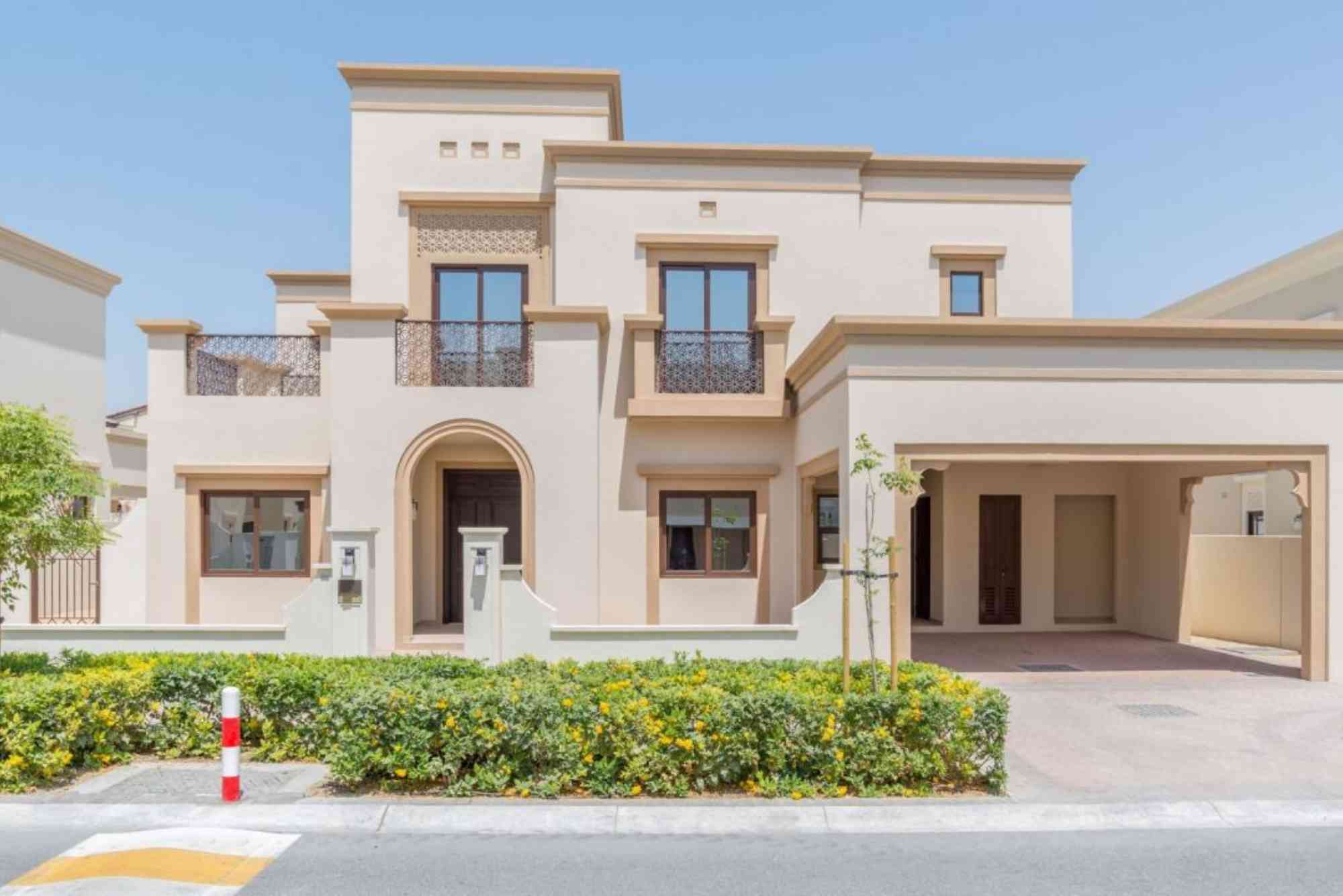Real Estate Terms Explained in Arabic – Beginner’s Guide
Understanding the world of real estate in Arabic can be both exciting and overwhelming for beginners. Whether you’re planning to buy property in an Arabic-speaking country or simply looking to work in the real estate industry, learning the key terminology is crucial. The Arabic real estate market uses a blend of classical, legal, and colloquial Arabic, making it essential to understand commonly used terms and their context. In this guide, we break down complex real estate vocabulary into simple explanations, helping you build a solid foundation in Arabic property language.
Why Understanding Real Estate in Arabic Is Important
Real estate is one of the most dynamic sectors in the Arab world. From Dubai’s skyscrapers to Cairo’s residential neighborhoods, property dealings require clear communication. Language is often a barrier for expats, investors, and even native speakers not familiar with industry jargon. Knowing the Arabic terms used in sales agreements, lease contracts, and property advertisements can help avoid misunderstandings and costly mistakes. In addition, understanding these terms demonstrates professionalism and builds trust with Arabic-speaking clients or partners.
Essential Real Estate Terms in Arabic for Beginners
Learning basic real estate terms in Arabic gives you the tools to read listings, understand contracts, and speak confidently with agents. Here are some foundational terms you’ll encounter:
(Al-‘Aqār) – Property
This is the most fundamental term. It refers broadly to real estate or property. It includes land, residential buildings, commercial units, or any physical structure attached to land.
(Al-Bay‘) – Sale
The term used when a property is being sold. A “عقد بيع” (contract of sale) is the document signed between the buyer and seller to finalize the transaction.
(Al-Ijār) – Rent or Lease
If you’re dealing with rental properties, this term appears frequently. The leasing contract is known as “عقد إيجار”.
(Al-Mālik) – Owner
This refers to the person who legally owns the property. In transactions or legal documents, the owner is often listed as “المالك الحالي” (the current owner).
(Al-Musta’jir) – Tenant
The tenant is the individual or entity that rents the property from the owner. This term is essential for lease agreements.
(As-Sijil Al-‘Aqāri) – Property Registry
This government-run database keeps track of property ownership. In most Arab countries, all legal transactions must be registered here.
(As-Sa‘y) – Commission
This is the fee paid to a real estate agent or broker. It is typically a percentage of the sale or rental value, often negotiated between parties.
(ʿArḍ ʿAqārī) – Property Listing
This term is used to refer to advertisements or offers for sale or rent. It may include details like price, location, and property type.
(At-Tamwīl Al-‘Aqārī) – Real Estate Financing
This involves mortgages and loans provided by banks or financial institutions for buying properties. Common phrases include “قرض عقاري” (real estate loan) and “رهن عقاري” (mortgage).
Navigating the Property Buying Process in Arabic
When you’re involved in a real estate transaction in an Arabic-speaking country, it’s helpful to know the process in the local language. From property searches to signing the final contract, many terms come into play.
Property Search
When searching for a home or commercial space, buyers typically work with an “سمسار” (real estate broker) or browse listings online. Listings include photos, descriptions, prices, and features such as “شقة مفروشة” (furnished apartment) or “فيلا مستقلة” (standalone villa).
Negotiation
Once interested in a property, buyers negotiate the price. The Arabic term “تفاوض” means negotiation. You may hear phrases like “هل السعر قابل للتفاوض؟” (Is the price negotiable?).
Property Valuation
Before securing financing or closing a deal, the bank or buyer may require a professional “تقييم عقاري” (valuation). This ensures the price reflects the market value.
Inspection
A property inspection or “فحص فني” ensures the building is structurally sound and free from major defects. This is especially important in older buildings.
Legal Documentation
This includes verifying ownership, registration, and any legal disputes. The buyer should work with a “محام عقاري” (real estate lawyer) to handle legal formalities.
Down Payment
In Arabic, a down payment is often called “عربون”. It secures the property before the final payment and contract signing. The percentage varies by country and agreement.
Finalizing the Sale
Once legal and financial matters are complete, both parties sign the “عقد البيع النهائي” (final sale contract), and the new owner is registered in the “السجل العقاري”.
Real Estate in Arabic: Rental Terms You Must Know
Renting a property requires knowledge of specific Arabic terminology related to leases, deposits, and tenant responsibilities.
Lease Term
This indicates the duration of the rental agreement, usually specified in months or years. You may hear “سنة واحدة قابلة للتجديد” (one year, renewable).
Advance Payment
Landlords often request payment in advance. This could be monthly, quarterly, or even annually depending on the agreement.
Security Deposit
A refundable deposit paid before moving in. In Arabic, it’s often called “تأمين مالي”.
Utilities
Terms such as “المياه”، “الكهرباء”، “الغاز”، and “الإنترنت” refer to essential services like water, electricity, gas, and internet. Tenants should confirm which are included in the rent.
Maintenance
Landlords may handle “صيانة عامة” (general maintenance) while tenants are responsible for minor repairs. Always clarify this in the lease agreement.
Common Property Types in Arabic-Speaking Markets
Knowing property types in Arabic helps you understand what’s available. Here are terms commonly seen in listings:
- شقة (Shaqqah) – Apartment
- فيلا (Villa) – Villa
- دوبلكس (Duplex) – Duplex
- منزل مستقل (Manzil Mustaqill) – Standalone House
- مكتب (Maktab) – Office
- محل تجاري (Maḥal Tijārī) – Commercial Shop
- أرض سكنية (Arḍ Sakanīyah) – Residential Land
- أرض زراعية (Arḍ Zira‘īyah) – Agricultural Land
Understanding Real Estate Legalities in Arabic Countries
Each Arabic-speaking country has its own property laws, but some concepts are universally used. Knowing these terms is key for compliance and safe transactions.
Foreign Ownership
Some countries allow foreigners to buy property in certain areas only. “قانون تملك الأجانب” refers to laws governing this.
Power of Attorney
If you can’t be present, you might assign a trusted person with “توكيل رسمي” (legal power of attorney) to sign on your behalf.
Registration Fees
These are government fees paid during the official transfer of ownership. In Arabic, they are called “رسوم توثيق” or “رسوم نقل الملكية”.
Mortgage
Understanding terms like “نسبة الفائدة” (interest rate), “الدفعة الشهرية” (monthly installment), and “مدة السداد” (repayment period) is essential for mortgage agreements.
Learning the key terms related to real estate in Arabic is your gateway to confidently navigating property markets across the Arab world. From understanding contracts to negotiating rent or buying land, a strong grasp of real estate language empowers you to make informed decisions and build lasting professional relationships. With the knowledge shared in this beginner’s guide, you’re now better prepared to read listings, talk with agents, and handle legal paperwork without confusion.
If you’re serious about investing or working in the Arab property market, continue your learning journey. Explore online courses, consult bilingual agents, or even hire a real estate translator when needed. Language should never be a barrier to your real estate success.
FAQs
Q1: What is the Arabic word for real estate?
A1: The Arabic term for real estate is “العقار” (Al-‘Aqār), which refers to any immovable property like land or buildings.
Q2: How do you say ‘real estate agent’ in Arabic?
A2: A real estate agent is called “سمسار” (Simsar) in Arabic. In more formal usage, “وسيط عقاري” (Waseet ʿAqāri) is used.
Q3: What does ‘عقد إيجار’ mean?
A3: “عقد إيجار” means lease or rental contract. It’s the legal agreement between a landlord and tenant.
Q4: Can foreigners buy property in the UAE?
A4: Yes, but only in designated freehold areas. The laws vary by emirate and property type, so always check the latest regulations.
Q5: What is a typical rental contract duration in the Arab world?
A5: Rental contracts are usually for one year, though shorter or longer terms can be negotiated depending on the landlord and location.




